The views expressed in our content reflect individual perspectives and do not represent the authoritative views of the Baha'i Faith.
The world’s response to the coronavirus pandemic has exposed two extremely divergent trends: the increasing impotence of nationalism and the remarkable unification of the global scientific community.
Never before in our history have we faced a worldwide enemy all at once. This viral foe, in its own unique way, has something important to tell us – that we cannot adequately fight such unseen enemies unless we come together as one people on one planet. In a sense, this threat to all people reinforces the message to humanity that the Baha’i teachings have long advocated – unify or perish:
How pathetic indeed are the efforts of those leaders of human institutions who, in utter disregard of the spirit of the age, are striving to adjust national processes, suited to the ancient days of self-contained nations, to an age which must either achieve the unity of the world, as adumbrated by Baha’u’llah, or perish. At so critical an hour in the history of civilization it behooves the leaders of all the nations of the world, great and small, whether in the East or in the West, whether victors or vanquished, to give heed to the clarion call of Baha’u’llah and, thoroughly imbued with a sense of world solidarity, the sine qua non of loyalty to His Cause, arise manfully to carry out in its entirety the one remedial scheme He, the Divine Physician, has prescribed for an ailing humanity. – Shoghi Effendi, The World Order of Baha’u’llah
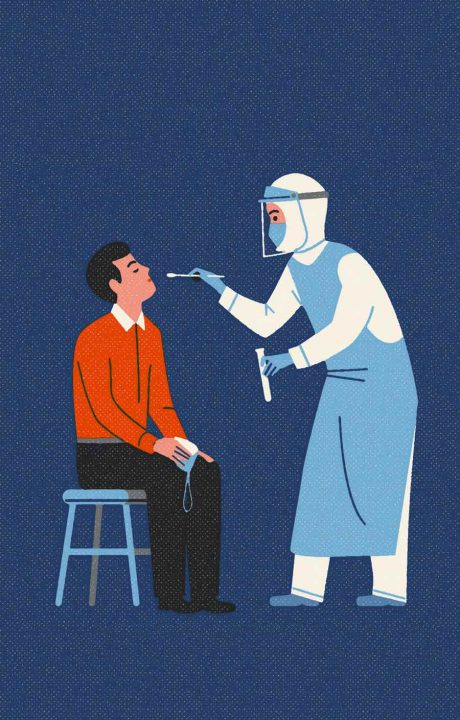
So far national governments have struggled to deal with this microscopic enemy by implementing a relatively slow, cobbled together patchwork of widely-varying measures. To try to counter the spread of the disease, some countries and localities did respond rapidly, while others lagged behind for a whole host of reasons – denial, bureaucracy, lack of political will, or just plain ignorance. A few political leaders immediately saw the emerging pandemic as a dire threat; while others dismissed it as a minor inconvenience, something only “foreign” countries had to worry about, or just another bout of seasonal influenza, thereby delaying the universal measures that could have saved the lives of thousands – widespread testing, contact tracing, containment and mitigation.
Even nations that share common borders took very different paths. Some quarantined their populations quickly; others did not heed the warnings and continued to privilege economic activity over caution and the advice of public health experts. Many countries failed to follow the lead of the more public health- and safety-oriented nations in the world, and are now paying an extreme price, not only in economic costs but in much higher fatality rates.
Of course, two hundred uncoordinated, inconsistent and divergent national responses to a ubiquitous global enemy like the coronavirus really give us very little chance of defeating it efficiently or effectively. Instead, we need the consistency of a unified effort across all nations at once, because no virus respects borders.
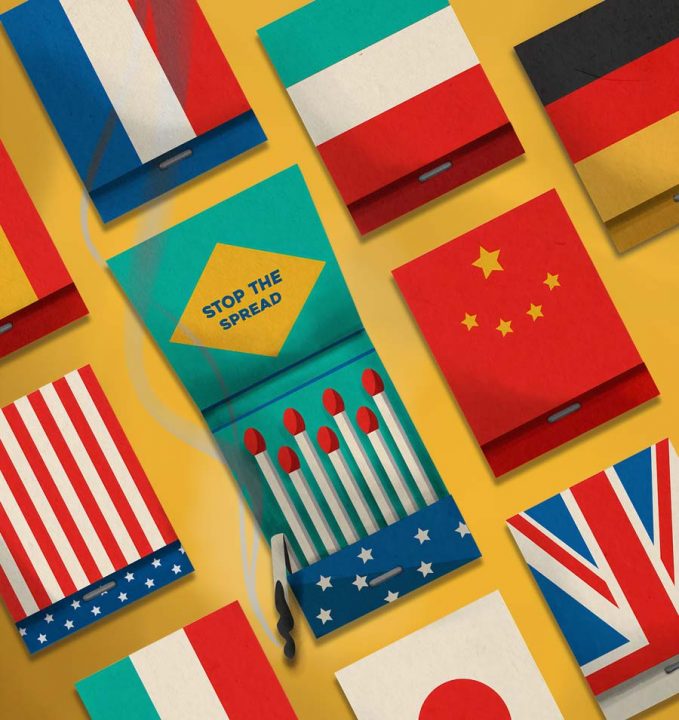
But thankfully, the global scientific community has demonstrated the exact opposite response, shining a bright light into this dark crisis. Rather than a pathetic, dis-unified and disorganized welter of variable reactions and actions, science itself has come together in ways never before considered or thought possible, creating a powerful, increasingly unified planetary force of scientists, researchers and academic institutions committed to counter the pandemic:
While political leaders have locked their borders, scientists have been shattering theirs, creating a global collaboration unlike any in history. Never before, researchers say, have so many experts in so many countries focused simultaneously on a single topic and with such urgency. Nearly all other research has ground to a halt.
Normal imperatives like academic credit have been set aside. Online repositories make studies available months ahead of journals. Researchers have identified and shared hundreds of viral genome sequences. More than 200 clinical trials have been launched, bringing together hospitals and laboratories around the globe.
“I never hear scientists — true scientists, good quality scientists — speak in terms of nationality,” said Dr. Francesco Perrone, who is leading a coronavirus clinical trial in Italy. “My nation, your nation. My language, your language. My geographic location, your geographic location. This is something that is really distant from true top-level scientists.” – Covid-19 Changed How the World Does Science, Together, By Matt Apuzzo and David D. Kirkpatrick, The New York Times, 1 April 2020.
Science knows no national boundaries. Physicians and researchers have collaborated together across international borders for many years, but the coronavirus outbreak has united them like never before:
On a recent morning, for example, scientists at the University of Pittsburgh discovered that a ferret exposed to Covid-19 particles had developed a high fever — a potential advance toward animal vaccine testing. Under ordinary circumstances, they would have started work on an academic journal article.
“But you know what? There is going to be plenty of time to get papers published,” said Paul Duprex, a virologist leading the university’s vaccine research. Within two hours, he said, he had shared the findings with scientists around the world on a World Health Organization conference call. “It is pretty cool, right? You cut the crap, for lack of a better word, and you get to be part of a global enterprise.”
Dr. Duprex’s lab in Pittsburgh is collaborating with the Pasteur Institute in Paris and the Austrian drug company Themis Bioscience. The consortium has received funding from the Coalition for Epidemic Preparedness Innovation, a Norway-based organization financed by the Bill and Melinda Gates Foundation and a group of governments, and is in talks with the Serum Institute of India, one of the largest vaccine manufacturers in the world. – Ibid.
Even new and ongoing scientific research – once kept confidential for both commercial and intellectual property purposes – has begun to open up. Two of the largest online archives of pre-publication and pre-review academic research, medRxiv and bioRxiv, have become shared, open-source repositories of “pre-print” emerging coronavirus research from around the globe. In February, a petition posted by academic researchers called on academic and medical journal publishers to make COVID-19 reports free to the public – which resulted in tens of thousands of papers being “unlocked” by respected medical journals from Elsevier, Oxford University Press, Taylor & Francis, Wiley, and others. “Publishers faced the choice between protecting the value of their intellectual property and protecting humanity during this incredibly urgent medical crisis,” the academic sponsors of the petition wrote in response to the dropping of the journals’ paywalls. The journals, to their credit, chose humanity.
Karen Grépin, an associate professor at the School of Public Health at the University of Hong Kong (HKU), told Times Higher Education that, in her estimation, “there has never been such a rapid global collective effort to fight one disease.” The article reported that:
Dozens of projects – mostly collaborations between medical schools, governments and pharmaceutical companies – are developing and testing vaccine candidates. Work is happening at specialized labs from VIDO-InterVac at Canada’s University of Saskatchewan to the department of immunology and microbiology at the University of Copenhagen.
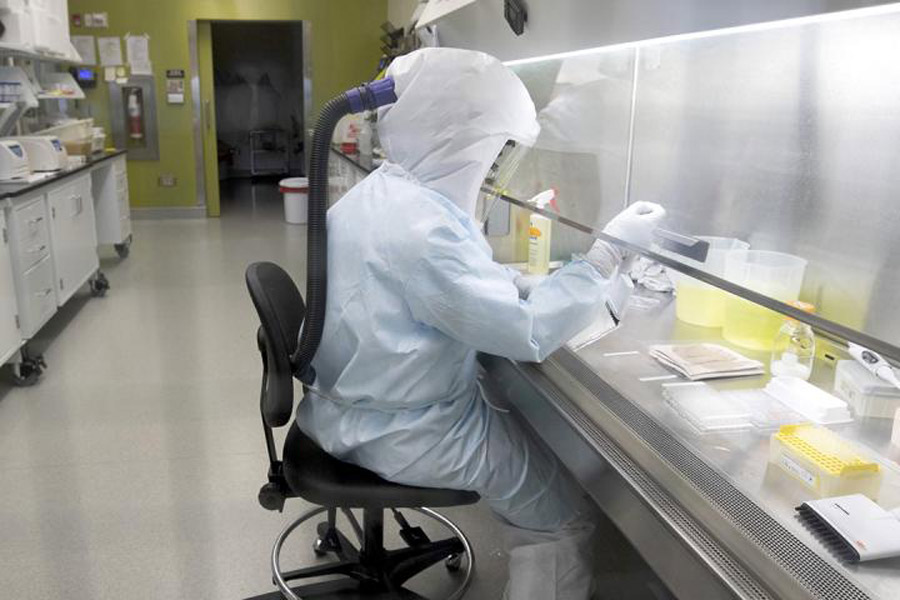
The Coalition for Epidemic Preparedness Innovations (CEPI), based in Oslo, has funded teams at the universities of Queensland and Oxford. UQ have said a vaccine could be ready within a year. Most recently, CEPI partnered with HKU’s State Key Laboratory for Emerging Infectious Diseases to fast-track work.
Many US schools, such as Johns Hopkins University, have halted other research in order to prioritise funding and research on Covid-19 and have openly shared information with other institutions. – Joyce Lau, Times Higher Education, March 25, 2020.
This global unification of the scientific community marks a new moment in human history, first heralded by the Baha’i Faith during the mid-19th century and now beginning to bear fruit:
Unification of the whole of mankind is the hall-mark of the stage which human society is now approaching. Unity of family, of tribe, of city-state, and nation have been successively attempted and fully established. World unity is the goal towards which a harassed humanity is striving. Nation-building has come to an end. The anarchy inherent in state sovereignty is moving towards a climax. A world, growing to maturity, must abandon this fetish, recognize the oneness and wholeness of human relationships, and establish once for all the machinery that can best incarnate this fundamental principle of its life. – Shoghi Effendi, The World Order of Baha’u’llah
We have now witnessed, at its dysfunctional apex, the “anarchy inherent in state sovereignty.” That anarchy has produced chaos, confusion and gross inequity in our global response to the coronavirus. Thousands of people have paid for it with their lives – and in the next pandemic, which will certainly occur, millions more could succumb unless we “abandon this fetish” of national sovereignty in an era of global oneness.
We cannot conquer the coronavirus with political infighting and a few hundred contradictory approaches, but luckily science can now come together as a unified force, transcend the arbitrary borders we’ve drawn on our globe, and give us hope for a cure. Imagine what could happen if our old forms of governance could follow that example. The Baha’i teachings say that only when we learn this crucial lesson of unity will we begin to achieve true peace and well-being:
O ye men of wisdom among nations! Shut your eyes to estrangement, then fix your gaze upon unity. Cleave tenaciously unto that which will lead to the well-being and tranquillity of all mankind. This span of earth is but one homeland and one habitation. – Baha’u’llah, Tablets of Baha’u’llah
You May Also Like
Comments



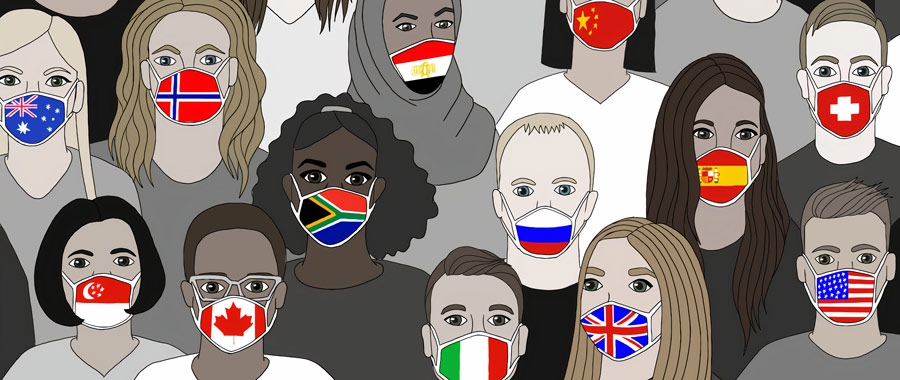

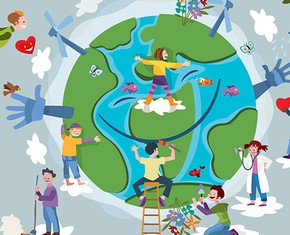

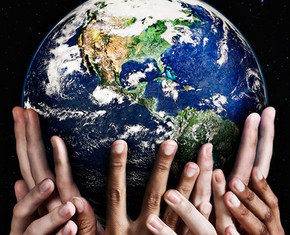









Pleasant is the realm of being, wert thou to attain thereto ... Shouldst thou attain this station, thou wouldst be freed from destruction and death, from toil and sin."